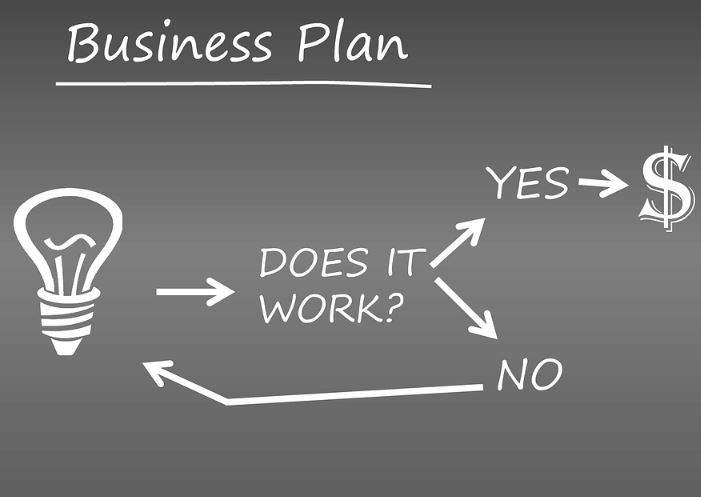Table of Contents
Entrepreneurs encounter diverse risks as they run their businesses and these risks may cut across bankruptcy, competition, finances as well as economic risks. Just the thought or possibility of failure and loss alone weighs down a lot of potential entrepreneurs; the result is usually that they continue as an employee and never come near entrepreneurship at all. While some people consider being fully an entrepreneur as an escape from the rigid 9-5 hours employee job, the fact still remains that the path to being a successful entrepreneur is full of risks and laced with myriads of uncertainties. It obviously calls for rethinking if on your scheme of things, taking risks is far below your strength as you will have to take a lot of risks to get what you want and to stay in the business. Elements relating to risk averseness is somewhat alien to the things that build up most successful entrepreneurs and it is worthy of noting that the height of your accomplishment as an entrepreneur is usually determined by the number of risks you are willing to delve in.

It is okay to have a great idea, in fact, the idea is part of the starting process and it’s just what the bulk of your business will revolve around. It, however, seems offsetting to see statistical reports like 20% of all business dies in the first year and 50% in their first 5 years. Again, it has been reported that out of every 10 businesses only five to six are usually still in operation after 5 years. This is the more reason why even entrepreneurs with seemingly big or revolutionary ideas often decide to play safe and take a lot of precautions. In the real sense, this is a big setback to the rest of the world. Thinking of the numbers of ideas that are locked in, never to see the light of the day all because of the fear of failing or risks. The other side of everything is that not all these risks usually materialize, at least for some.
So, yeah, you can find risks and entrepreneurship on the same side of the spectrum and they can as such be somewhat synonymous. A lot of things go down the drain when it comes to setting up a business and it is never a simple walk in the park. Being a key player and staying in charge of your own life is something worth it for some people but if success is going to come cruise with you, you have got to be set. You have got to brace up and be ready to take up the challenges every step of the way. What more? The following are some of the risks that you will have to take and overcome if you are going to increase your odds of success as an entrepreneur.
Giving up your Paycheck.
This perhaps ranks first on the list and the reason is definitely not far-fetched. This looks like the point where all the craziness of giving a lot of things starts up in preparation to step into the business world. You will have to part with your current job whether immediately or in the short run. Often, a lot of people find themselves dropping out of their career. While a couple of people devise a plan to fall back on in case things go south quickly, it is still a risky dive especially for entrepreneurs who are just starting out. The major reason is that there is no assurance of making any profit in the first few years of your company and it may even take a long time before you break even. Sad thing is that you might be too busy to get your hands on other income sources.
Giving up your capital.
 For some entrepreneurs, it might be quicker and easy getting access to external funding such as from angel investors, business accelerators, grants or investments. However, most entrepreneurs usually have to spend their personal savings to kick start their business. Although it may not be quickly imperative to sink your reserve, the fact still remains that you will be footing almost all of your business bills with your own money. Yet, in the long run, it may eventually come down to ditching your failsafe money.
For some entrepreneurs, it might be quicker and easy getting access to external funding such as from angel investors, business accelerators, grants or investments. However, most entrepreneurs usually have to spend their personal savings to kick start their business. Although it may not be quickly imperative to sink your reserve, the fact still remains that you will be footing almost all of your business bills with your own money. Yet, in the long run, it may eventually come down to ditching your failsafe money.
Approximating adoption.
It is easy or not to conduct market researches and run diverse tests of the feasibility of your business idea, but you will never be able to perfectly estimate how quickly or not your business will be adopted in the market. The unpredictability of people and market fluctuations make it all the more difficult to accurately determine what and what will be ideal to run with. Even when all your results seem as expected, there may be a possibility of over-optimizing your results to provide what you expect. And if your calculations are off, it may be a quicker way of collapsing or slowing down the profitability of your business.
Staving off competition
There is every chance that whatever business idea you have, someone else already has it and is probably working on it. Thus the saying goes that no idea is unique. It is easier said than done to stir clear of competition which comes as a solution to avoid being killed by the competition itself. Yet, it is important to stay competitive especially as an entrepreneur. In order to build a strong brand and plant a rock-solid customer base, it is important to be distinctive in your business and revolutionary in your approach to customer satisfaction. The thought of this poses a great risk to business owners as competition is somewhat the drive of the entrepreneurial game.
Time and health.
There is no underestimating the level of resourcefulness good health and ample time can bring to the table for an entrepreneur. However, the strains of running a business almost always take their tolls on the health of an entrepreneur. Many hours of brainstorming, sleepless nights striving to meet deadlines and hit target milestones are some of the things you may find yourself doing as an entrepreneur. A lot of stress will accompany the process of keeping your business running and definitely, you will easily have to sacrifice your personal time. Such a lifestyle is very inevitable and you have to be prepared for it, but the rewards of being an entrepreneur usually outweigh them all.
FRANCHISING
With all being said, the path of entrepreneurship demands a lot and you will have to be prepared for these and many more risks. Risk comes with hiring your first employee and also accompanies closing on profitable deals. This is why a lot of risk-averse people start out with franchising. Franchising may be a good thing to consider as it is a good business model for rapidly building presence, especially in international markets. Franchising solves a great deal because it provides an avenue to collaborate and identify with established brands and enjoy the benefits of a robust marketing and distribution system.
You can see a lot of successful franchises out there and on the Entrepreneur’s list, you can find such like McDonald’s, 7-Eleven, Sonic, ReMax to mention a few.
However, despite the benefits that come with franchising, new franchises must overcome some little hiccups and this usually revolves around working capital. One of the most prominent reasons why franchises fall flat is the lack of enough working capital. Launching out as a franchise will require a lot of capital depending on the complexity of the franchise itself.
AFFILIATE MARKETING
In the face of the capital threat facing franchising, if you have issues raising such a large amount of capital to start out as a franchise, affiliate marketing comes in as a great alternative. Affiliate marketing allows you to collaborate as a partner with an already established dealer in goods or services after which you set up an independent website to promote their products. Whatever customer profit that goes to them through you drop a percentage of profit for you too. Pay per Sale, Pay per click, Pay per call and Pay per lead are common ways to establish this kind of business model with the dealer/seller. It is somewhat easy to run because you really don’t have to incur any startup cost. You don’t even have to store up their products nor develop their offerings. A lot of it depends on how you want to play it. More so, you call the shots as to what you want to sell.
In conclusion, being an entrepreneur is risky and while a lot of people wade it off because of the uncertainties it comes with, deciding to step into it is definitely worth it. The way to go into the entrepreneurial world comes in shapes and sizes depending on how quickly you want to move, your capital amount, as well as how averse you are to risk. That’s why affiliate marketing and franchising are always good business models to try. For more info on how to make money with affiliate marketing this link!



